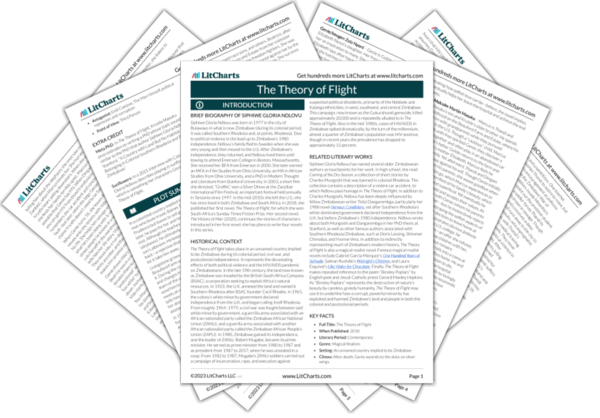African-American abolitionist Frederick Douglass (1817/1818–1895) escaped from slavery on September 3, 1838. The Zimbabwe People’s Revolutionary Army (ZIPRA) shot down a passenger plane, Air Rhodesia Flight 825, on September 3, 1978. The majority of passengers died in the crash. The juxtaposition of images here—Douglass’s escape, ZIPRA’s attack, and the hatching of Elizabeth’s egg—may suggest that aspirations toward progress, freedom, and (re)birth require violence, or it may simply suggest that seemingly disparate people are linked by coincidences across history.
